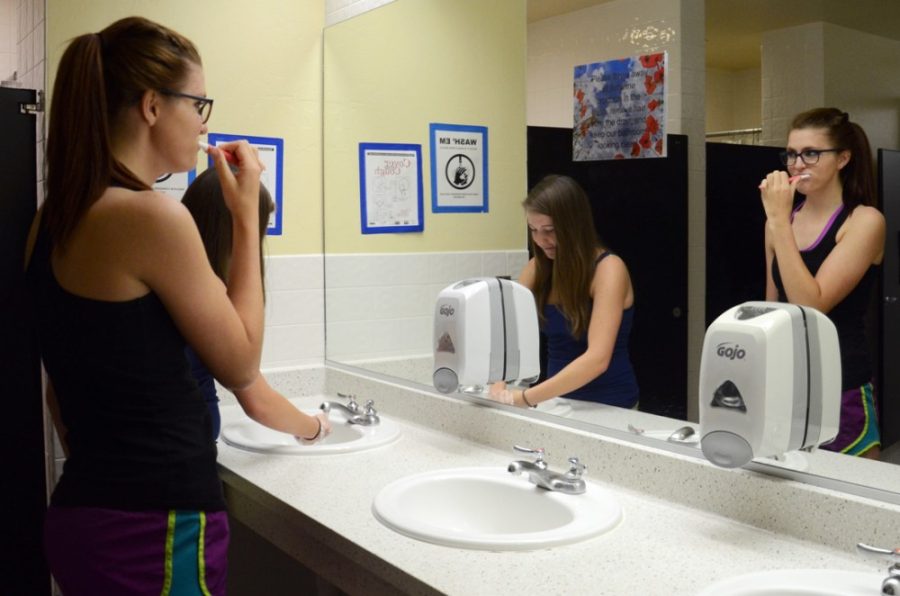Germs and viruses are all around us. This is especially true in communal areas, such as the residence halls that are new homes to many incoming freshmen. Researchers in the Mel and Enid Zuckerman College of Public Health have been studying how easily these invisible threats can be spread.
Simple hygiene intervention techniques can reduce the risk of getting an illness from these viruses, according to Kelly Reynolds, an associate professor in the College of Public Health.
Reynolds is currently studying the spread of viruses in communal areas such as bathrooms, conference rooms and office spaces. She recently completed a simulation that mimicked a sick person coming into work in Reynolds’ own office to follow the spread of viruses.
Reynold’s office space consists of separate cubicles for her and her colleagues.
“We tend to be fairly isolated, so we didn’t think that we’d see a lot of spread of germs, but I was wrong,” Reynolds said.
Reynolds studied the virus spread by following the spread of an artificial detectable “virus” given to an unknown colleague in the morning.
“By lunch, we came back and started swabbing surfaces and hands of other workers on this floor and found that over 50 percent of surfaces and over 50 percent of the hands of other workers tested positive for this virus,” Reynolds said.
In addition to studying the spread of viruses, Reynolds and her colleagues also looked at what can be done to prevent the spread of viruses. Their hygiene intervention consisted of simply putting up signs and telling the research participants to use hand sanitizer, which is what resulted in the reduced risk of viral spread.
“The amount of pathogens on the surfaces dropped dramatically and reduced by 80 percent [through hygiene intervention],” Reynolds said.
This information is especially pertinent to the thousands of incoming freshmen and returning students living in the residence halls.
“Prevention is a very big deal, especially for residents, because they’re not with their family to take care of them,” said Delaney Stratton, a registered nurse and graduate student in the College of Nursing. “Not only are illness factors physically draining, it can be emotionally draining as well, so preventing the entire thing would be the ideal situation.”
There are two simple tips that students can use to prevent the spread of viruses in the residence halls, Reynolds explained. The first one is well known — frequent hand washing — but students should also refrain from touching their faces, as viruses can enter through the mouth or nose, Reynolds said.
“It’s a matter of empowering people to be their own self-advocates,” Stratton said.
—Follow Chelsea Regan @DailyWildcat









